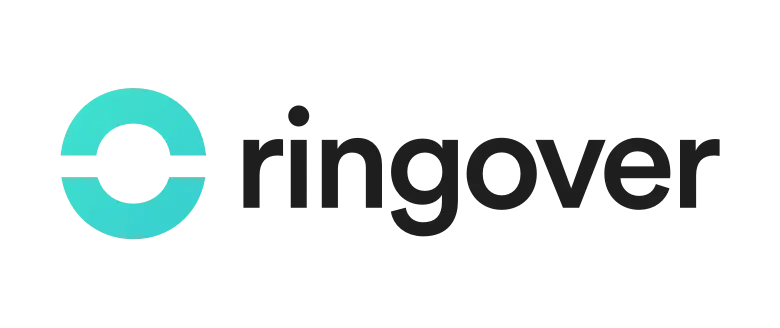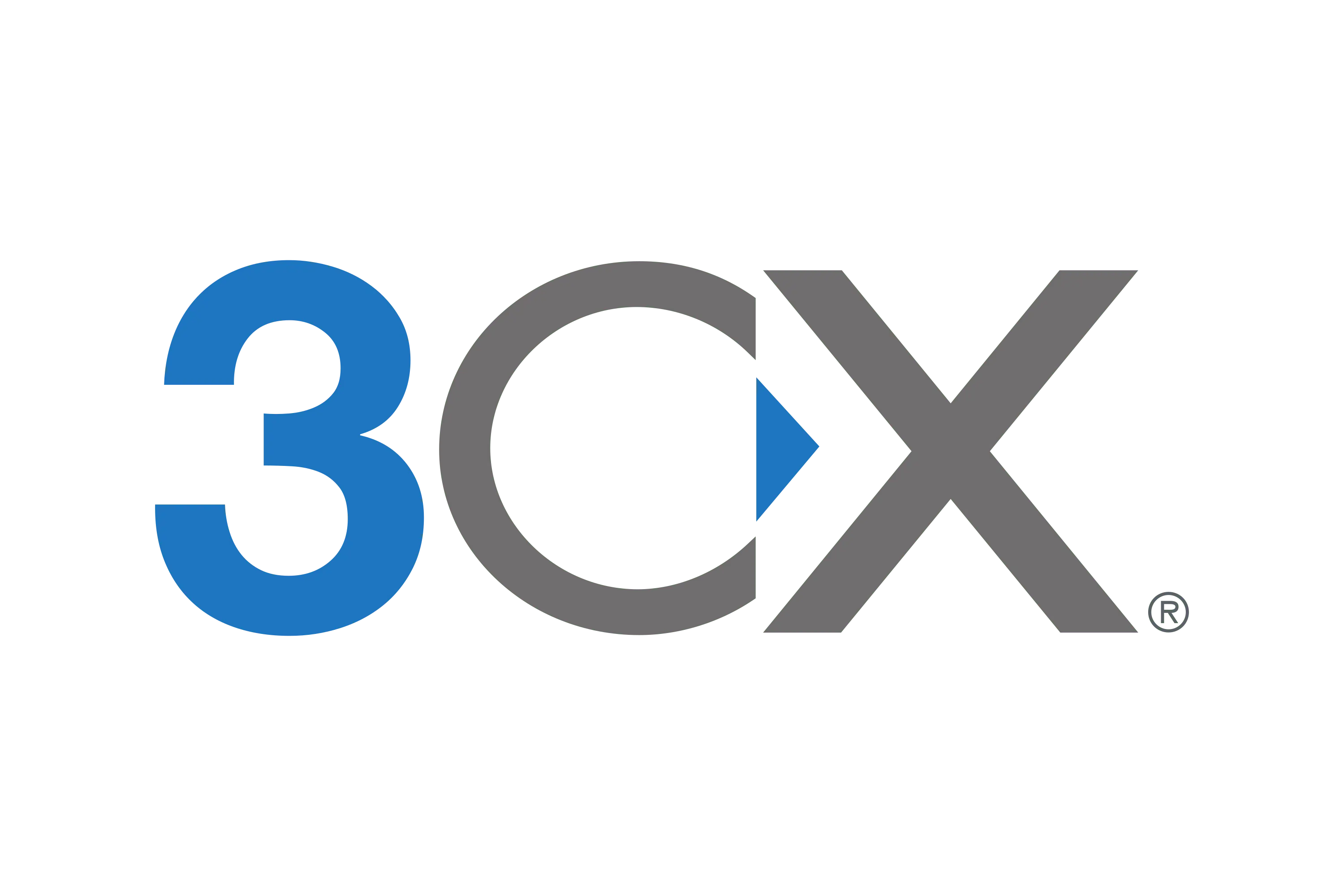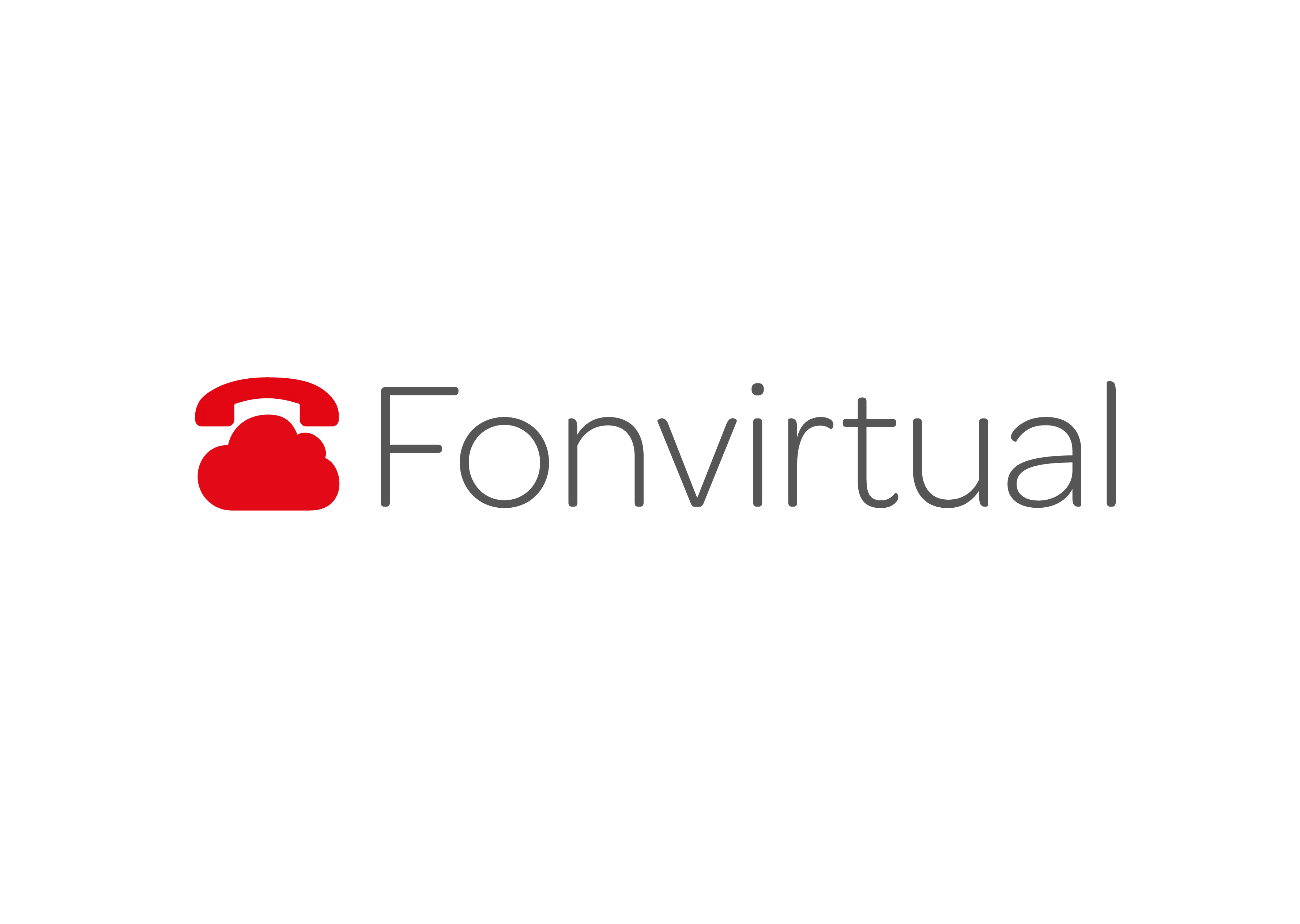We use cookies to personalize content, provide social media features and analyze traffic. You can get more information by visiting our cookie policy. You can configure cookies without accepting them by clicking hither.
These are the 15 best business phone systems in 2026:
- Harmonix AI
- Ringover
- CloudTalk
- Netelip
- 3CX
- 8x8
- Vonage
- Zadarma
- Fonvirtual
- Masvoz
- GoTo Connect
- Aircall
- Dialpad
- Avaya Cloud Office
- JustCall
Choosing the best business phone systems has become a key strategic decision to improve customer service and optimize internal processes.
In an environment where every second counts, having an efficient solution to manage calls and messages can make the difference between closing a sale or missing an opportunity.
For years, many organizations operated with a single communication channel, like email or telephone. However, this approach limits visibility over what happens with each customer and slows down response capabilities.
Today, the trend points toward the integration of multiple channels into a single system. This omnichannel approach not only enhances customer experience, but also allows for more accurate, data-driven decisions.
Additionally, a modern phone system should not focus solely on calls. Ideally, it should connect with users via WhatsApp, email, LinkedIn and more, all from a single interface.
This boosts operational efficiency and reduces management time.
In the following sections, we'll see what features the best phone systems must have, what advantages they offer, and how they can adapt to your company’s needs.
The 15 Best Business Phone Systems
1. Harmonix AI

Harmonix AI is not a traditional phone system or CRM. It is an artificial intelligence platform that installs on top of any CRM or ERP, like Salesforce, SAP or Dynamics, without replacing them.
This allows you to digitize and centralize all communication channels,calls, WhatsApp, email, LinkedIn and more, from the system your team already uses, with no need to change environments or learn new tools.
Thanks to its advanced GenAI technology, Harmonix not only connects all channels, it also automates repetitive tasks, analyzes conversations in real time and generates strategic insights for users and managers.
This results in faster, more productive users and management that can make informed decisions based on real and updated data.
Harmonix also enables the creation of intelligent agents to assist in customer service, sales or follow-up, freeing up time for higher-value tasks and ensuring that no opportunity is left unattended.
7 Key points of Harmonix AI:
- Installs on any existing CRM/ERP, without replacing it
- True omnichannel: calls, WhatsApp, email, LinkedIn and more, all in one place
- Task automation such as activity logging or email sending
- Business intelligence: analyzes all interactions to extract insights and detect trends
- Proven increase in productivity and work quality for sales teams
- Greater forecast accuracy through AI-driven analytics models
- Automatic quality control and compliance across all communications
2. Ringover

Ringover is a cloud-based telephony solution that allows managing calls, video calls and messages from a centralized platform.
It stands out for its intuitive interface and its ability to integrate with sales and customer service tools.
It offers features such as call recording, queues, and real-time monitoring panels, making it a comprehensive option for hybrid or remote teams.
3. CloudTalk

CloudTalk is designed for sales and support teams that need an advanced VoIP system.
It includes features like automatic call recording, real-time analytics and intelligent routing.
It also integrates with major CRMs and helpdesk platforms, facilitating more efficient customer management at every stage of the process.
4. Netelip

Netelip offers a virtual phone system highly targeted at SMEs, with a simple and effective proposal to manage calls, voicemail and statistics.
It stands out for its flexibility and customizable options, allowing businesses to set up communication flows according to their specific needs.
5. 3CX

3CX is a phone system solution hosted in the cloud or on-premise, compatible with SIP.
It allows control of calls, chats, video conferences and more, all from a single interface.
Its free version for small businesses, combined with advanced features in paid plans, makes it ideal for both SMEs and large corporations.
6. 8x8

8x8 is a unified communications platform that covers voice, video, messaging and contact center.
It offers strong security, recordings, real-time analytics and scalability for large teams, making it a powerful choice for growing organizations.
7. Vonage

Vonage has become a benchmark in cloud business communication solutions.
It enables calls, messages and meetings from a single app, with high integration capacity with CRMs and productivity tools.
Its focus on customer experience makes it a strategic choice.
8. Zadarma

Zadarma stands out by offering a free and scalable virtual phone system.
It includes call recording, interactive voice menus and detailed analytics.
It’s ideal for companies seeking an affordable yet functional service, especially if they operate internationally.
9. Fonvirtual

Fonvirtual provides IP telephony and virtual phone system services, including integration with WhatsApp Business, which enhances its omnichannel offer.
It also provides virtual numbers in different countries, ideal for businesses with international presence or distributed teams.
10. Masvoz
Masvoz combines a virtual phone system with cloud contact center services.
Its modular and highly customizable approach makes it attractive for companies looking for tailor-made solutions.
It allows recordings, real-time monitoring and comprehensive customer service management.
11. GoTo Connect

GoTo Connect is a cloud-based phone system that combines VoIP telephony, video conferencing, and messaging into a single platform.
It integrates seamlessly with tools like Zoho, Salesforce, and HubSpot, making it an attractive solution for businesses looking to centralize their communications.
It includes features such as custom call routing, call recording, and real-time monitoring dashboards. In addition, it offers high connection reliability and solid technical support, ideal for companies that cannot afford interruptions in their operations.
12. Aircall

Aircall is designed for sales and support teams that require quick deployment and ease of use.
This cloud phone system stands out for its intuitive interface and the ability to set up in minutes without the need for complex hardware.
It integrates directly with over 100 tools, including Zoho, Pipedrive, and Zendesk. Among its most valued features are call tagging, live monitoring, and automatic report generation to help optimize commercial activity.
13. Dialpad
Dialpad combines cloud telephony with artificial intelligence to deliver a more productive communication experience.
Its AI can transcribe calls in real time, detect keywords, and suggest responses or actions while speaking with a customer.
It’s compatible with CRM and collaboration tools such as Zoho, Microsoft Teams, and Slack, making it easy to integrate into existing work environments.
This makes it a powerful choice for businesses looking to automate tasks and improve interaction quality.
14. Avaya Cloud Office

Avaya Cloud Office provides a virtual phone system and cloud-based business collaboration solution, designed to unify calls, messages, and video conferencing in a single app.
It stands out for its robust security, extensive customization options, and the ability to scale easily as the business grows.
It integrates with tools like Zoho, Google Workspace, and Microsoft 365, ensuring a smooth transition with no interruptions to daily operations.
15. JustCall

JustCall is a VoIP phone system aimed at sales and support teams that need to manage calls and messages from anywhere.
It allows businesses to assign international numbers, automate follow-ups, and record interactions for later analysis.
It integrates with Zoho, Salesforce, HubSpot, and other leading platforms, ensuring a continuous data flow between calls and the CRM.
Its auto-dialing feature and real-time reporting make prospecting and performance tracking much more efficient.
These options range from accessible solutions for small businesses to robust platforms for large corporations.
Comparing key features, integration level, ease of use and technical support will help you choose the most suitable phone system for your organization.
What Is a Business Phone System?
A business phone system is a system that manages an organization's internal and external communications, mainly phone calls.
It allows redirecting, transferring or automating calls, integrating voicemails, interactive menus and much more.
Its main goal is to improve efficiency and professionalism in customer service.
Today, phone systems have evolved and many now run from the cloud, which lowers costs and improves access from any place or device.
But most importantly, they now allow integration of channels such as WhatsApp, email or video calls, opening the door to more effective and fluid customer management.
Why Does Your Business Need a Modern and Omnichannel Phone System?
Traditionally, many companies used a single communication channel, like email or telephone, to interact with customers.
This limits visibility into what’s happening and forces teams to search for scattered information across multiple platforms, wasting time and missing opportunities.
A modern phone system integrates all channels into a single work environment.
This omnichannel structure enables a more consistent and agile customer experience, while also generating valuable data for better decision-making.
In this context, solutions like Harmonix AI add an extra layer of intelligence: they install over any CRM without replacing it and allow users to be more productive and faster in their daily tasks.
Thanks to its ability to automate repetitive tasks and analyze conversations, Harmonix turns every interaction into a source of value, enhancing both service and commercial strategy.
In summary, a modern phone system is not just a tool for receiving calls. It is a complete communications management system that, when properly implemented, boosts efficiency, collaboration and business intelligence.
Advanced Strategies to Maximize the Value of Your Business Phone System in 2026
A phone system is no longer just about handling incoming and outgoing calls.
The most competitive companies in 2026 are turning their phone systems into strategic assets—tools that not only connect them to customers, but also gather intelligence, streamline workflows, and adapt to changing market conditions in real time.
In this section, we’ll go beyond the basics and explore advanced tactics, hidden features, and high‑impact integrations that can turn your business phone system into a true growth engine.
1. Integrating Customer Data in Real Time Across All Channels
One of the most overlooked capabilities in modern phone systems is real‑time CRM synchronization.
Instead of logging calls manually or waiting for nightly updates, advanced integrations can:
- Instantly pull up a customer’s history the moment they call.
- Update lead status and notes the second a conversation ends.
- Synchronize call recordings, voicemails, and even chat transcripts directly into your CRM.
For example, if you’re using Harmonix AI, a call from a prospect triggers an automatic profile pop‑up with past interactions, purchase history, and even sentiment analysis from previous calls—before you even say “Hello.”
This context‑first approach allows agents to respond more intelligently and personally, increasing conversion and satisfaction rates.
2. Leveraging AI‑Driven Call Summaries and Sentiment Analysis
Modern systems can now transcribe calls in real time and use AI to detect tone, urgency, and key topics discussed.
This enables you to:
- Prioritize follow‑ups based on emotional cues (e.g., urgency, frustration, excitement).
- Generate instant meeting notes without manual typing.
- Spot trends in objections or frequently asked questions.
Solutions like Dialpad or Harmonix AI provide actionable recommendations after each call, such as suggesting a discount, sending a case study, or escalating an issue to a senior rep.
This means less admin work for your team and more informed next steps—without losing valuable details.
3. Building Dynamic Call Routing Based on Context
Instead of routing calls simply by department or location, advanced phone systems allow dynamic, smart routing:
- By customer value: High‑value accounts get routed to senior account managers.
- By previous interaction: Returning callers speak to the same agent for continuity.
- By language or region: Automatic detection from caller ID or interactive voice responde (IVR) input.
Platforms like 8x8 and Avaya Cloud Office can integrate with CRMs to make routing decisions before the call even connects, reducing transfers and improving customer experience.
4. Automating Post‑Call Workflows
In many sales and service teams, the real time‑sink isn’t the call itself—it’s what happens after.
Advanced phone systems can trigger post‑call automations, such as:
- Sending thank‑you emails.
- Creating follow‑up tasks in project management tools.
- Updating inventory or shipping systems if an order was placed.
- Notifying managers of high‑value deals in progress.
With Aircall or JustCall, these workflows can run instantly, freeing your team from repetitive admin and ensuring nothing falls through the cracks.
5. Using Analytics to Predict Demand and Resource Needs
Basic phone reports tell you how many calls you had yesterday.
Predictive analytics—available in systems like Harmonix AI or GoTo Connect—go a step further by:
- Forecasting peak call times based on historical data.
- Identifying when extra agents should be scheduled.
- Linking call volume spikes to marketing campaigns or seasonal trends.
This allows proactive staffing and resource allocation, preventing long wait times and missed opportunities.
6. Incorporating Video and Collaboration Tools Seamlessly
Many modern phone systems now offer built‑in video conferencing and messaging, but the real power lies in integrated workflows:
- A sales rep on a call can instantly escalate to a video demo without switching platforms.
- A support agent can share their screen with a customer mid‑call to troubleshoot an issue.
- Teams can review call recordings together during a video meeting to improve scripts.
Solutions like Ringover and Vonage make this fluid channel switching possible, resulting in faster problem resolution and more engaging customer experiences.
7. Creating a Mobile‑First Communication Strategy
With more teams working remotely or on the go, a phone system’s mobile app capabilities are critical.
The most advanced apps allow:
- Full call management from any device, including transfers and conferencing.
- Access to the same CRM‑synced customer profiles you’d see at your desk.
- Push notifications for missed calls, voicemails, or urgent internal messages.
For sales teams in the field, this means no loss of functionality when away from the office—and faster response times for hot leads.
8. Customizing KPIs and Dashboards for Different Roles
The metrics a sales director cares about are not the same as those for a support manager.
Modern phone systems let you build role‑specific dashboards, showing:
- For sales: call‑to‑conversion rates, top performers, pipeline value from calls.
- For support: average handling time, first‑call resolution, satisfaction scores.
- For executives: high‑level trends, cost per contact, ROI of outreach campaigns.
Systems like 3CX and Harmonix AI can display these dashboards in real time, making performance tracking a daily habit, not a monthly chore.
9. Strengthening Compliance and Data Security
With regulations like GDPR and industry‑specific compliance rules, your phone system must secure every interaction.
This includes:
- End-to-end encryption call recordings and storage.
- Access control by role or team.
- Automated data retention policies to avoid storing information longer than necessary.
Providers like Masvoz and Avaya Cloud Office offer audit‑ready compliance features, so you can focus on customers without risking legal penalties.
10. Training and Coaching Through Live Call Monitoring
Many phone systems now include whisper and barge‑in modes, letting managers:
- Listen to live calls without the customer knowing.
- Whisper suggestions to the agent mid‑call.
- Join the conversation if escalation is needed.
This turns daily operations into a continuous training opportunity.
Instead of generic coaching sessions, feedback is tied to real interactions, helping agents improve faster.
Why These Advanced Strategies Matter
In 2026, the difference between simply having a phone system and fully leveraging it will directly impact:
- Customer retention: Faster, more personalized service keeps clients loyal.
- Sales performance: Data‑driven outreach and AI insights improve conversion rates.
- Operational efficiency: Automation cuts wasted time and human error.
- Scalability: Systems designed for growth prevent expensive migrations later.
Implementing even three or four of these strategies can transform your phone system from a cost center into a profit‑generating engine.
And with tools like Harmonix AI, many of these capabilities can be layered on top of your existing CRM and workflows—no costly rip‑and‑replace project required.
5 Key Features of a Good Business Phone System
1. Real Omnichannel: Calls, WhatsApp, Email, LinkedIn and More
A modern phone system must allow you to manage all communication channels from one place. Not just calls, but also WhatsApp, email, LinkedIn and more.
This omnichannel approach prevents teams from wasting time switching between apps and improves customer experience by offering faster, more personalized responses.
Having all channels integrated also eases access to each customer’s context and improves coordination between departments.
2. Full Interaction History with Context
A good phone system automatically records each call, message or email, linking it to the corresponding customer.
This allows any team member to see what was said, when and through which channel, improving continuity and consistency in service.
Having this context prevents misunderstandings, speeds up management and builds customer trust in the company.
3. Automation of Repetitive Tasks (Like Auto-Dialing)
The most powerful phone systems include features like an automatic call dialer, predefined replies or call scheduling.
This frees agents from mechanical tasks, allowing them to focus on what really matters: the conversation with the customer.
By reducing manual steps, it accelerates workflow and boosts team productivity.
4. Advanced Analytics: Real-Time Reports and Sales Tracking
A smart phone system powered by artificial intelligence doesn’t just manage calls, it also measures performance and provides key data for decision-making.
You can track how many calls were made, their duration, success rates, and even link this data to business results.
This kind of information is crucial for identifying improvement areas and optimizing sales and support processes.
5. Access from Any Device with Cloud Synchronization
Flexibility is another essential pillar. A good phone system must work from any computer, tablet or smartphone, allowing work from anywhere.
Thanks to cloud synchronization, all information updates in real time, preventing data loss or record duplication.
This is especially useful for hybrid teams, mobile salespeople or companies with multiple locations.
Some solutions, like Harmonix AI, integrate all these features into a single platform. By installing over any CRM without replacing it, it allows teams to be more productive and faster, centralizing all channels in one interface and delivering real-time business intelligence.
3 Common Challenges When Choosing a Phone System and How to Overcome Them
1. Integration with Existing Systems
Many companies fear that implementing a new phone system will require major changes or expensive integrations with their CRM or ERP.
To avoid this, it’s best to choose solutions that can easily integrate with current tools, without replacing them or disrupting workflows.
Harmonix, for instance, installs on any CRM and starts working without large-scale tech projects, making adoption smooth.
2. Team Resistance to Change
It's common for teams to resist new technologies, especially if they think these tools will complicate their work.
The key is to offer intuitive tools that truly help them work faster and with less effort.
When users see that a phone system automates tasks and reduces the need to switch between platforms, adoption becomes much more natural.
3. Initial Training and Adoption Curve
Another frequent barrier is the learning curve involved in adopting a new communication system.
To overcome this, it’s essential that the chosen solution offers a clear interface, accessible training and ongoing support.
Also, having features that guide users step-by-step accelerates adoption and improves the experience from day one.
How to Choose the Best Phone System for Your Business
Evaluate Your Current Channels and Integration Needs
Make a list of the channels you currently use, calls, WhatsApp, email, LinkedIn, and prioritize options that offer true omnichannel support.
If your goal is to simplify your workflow and offer a consistent customer experience, make sure the system can integrate all communication in one place.
Consider Your Team Size and Call Volume
A phone system should adapt to your operations. The larger the volume, the greater the need for automation, call queues and efficient distribution.
Scalable solutions allow you to grow without changing platforms, maintaining stability and performance over time.
Prioritize Analytics and Productivity Reports
What you don't measure, you can't improve. Look for tools that provide real-time data to assess team performance and service quality.
Metrics like call duration, success rates, response times and conversion help improve both sales and support strategies.
Ensure Support and Frequent Updates
Technology evolves quickly. A good phone system must be in constant evolution, offering accessible and ongoing support.
Check that the provider offers frequent updates, detailed documentation and dedicated assistance, especially during onboarding and scaling phases.
In this context, Harmonix AI stands out as a solution designed to maximize productivity. By integrating multiple channels into a single interface and analyzing each interaction with AI, it helps make strategic decisions with more data and less effort.
All of this, without needing to change your CRM.
Why Harmonix AI Is Your Best Ally for Sales and Prospecting
In today's commercial world, the difference between an efficient sales team and an average one often lies in the tools they use.
Harmonix AI completely transforms how teams manage prospecting, integrating all communication channels, calls, WhatsApp, email, LinkedIn, into a single accessible platform.
This allows users to be faster and more productive, reducing manual tasks and maximizing time spent on generating real opportunities.
Thanks to its ability to automatically analyze each interaction, Harmonix provides real-time actionable insights that boost conversions and optimize every stage of the sales funnel.
Moreover, by installing over any CRM without replacing it, it enables frictionless adoption, allowing the team to start seeing results from day one.
While many companies continue to operate in isolated channels, Harmonix centralizes all communication, empowering more data-driven strategic decisions.
Frequently Asked Questions (FAQs)
How Does a Phone System Help Improve Sales Analysis?
A good phone system records all interactions and links them to each customer. This allows you to analyze behavior patterns, measure contact effectiveness and optimize processes.
What Features Are Key for Effective Customer Prospecting?
The most important are: auto-dialer, CRM integration, full interaction history, and unified channels, all essential for efficient sales prospecting.
How Does Harmonix AI Ensure Data Protection and GDPR Compliance?
Harmonix complies with GDPR standards. All data is securely centralized and logged, ensuring data protection at every stage.
Can I Integrate Multiple Channels Like WhatsApp, Email and Calls in a Single Phone System?
Yes, but not all systems allow this. Advanced solutions like Harmonix offer true omnichannel, letting you manage all channels from a single environment.
What Are the Most Common Mistakes When Implementing a Phone System and How to Avoid Them?
The main mistake is not considering CRM integration or team resistance due to a steep learning curve. The solution is to choose tools that adapt to the current environment and are easy to use.
What Kind of Reports Can I Get with a System Like Harmonix AI?
You can access reports on calls, commercial activity, response times, conversion rates and much more. All based on real-time data with an intelligent analysis layer.
Is It Possible to Use the Phone System from Mobile Devices or Remotely?
Absolutely. Modern phone systems run in the cloud and are optimized for access from any device, supporting remote or mobile work without losing functionality.


.webp)







